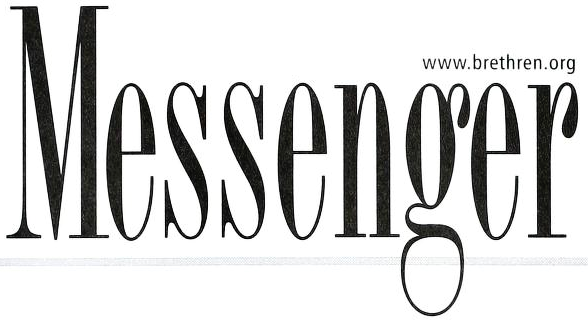As the millennium came to a close, the chorus of war tax resisters that had sung strongly in the Church of the Brethren through the sixties, seventies, and eighties faded to a handful of crickets, and then, finally, to nearly nothing.

In the on-line archives of the Messenger and Brethren Evangelist give out at Internet Archive. But maybe that’s just as well. In there was almost nothing in either magazine touching on war taxes or war bonds.
I was able to find a couple of things in the on-line Messenger archives at brethren.org.
A article profiled David R. Bassett and his war tax resistance and his work with the National Campaign for a Peace Tax Fund. The page containing this article also has an audio interview with Bassett.
A article on “The Brethren in World War Ⅰ” noted that “the Sedition Act… criminalized speaking out against purchase of Liberty (war) Bonds, which resulted in charges against Brethren pastors J.A. Robinson of Iowa and David Gerdes of Illinois.”

The Pilgrim recounted this story in its issue (source):
In the Old Brethren had existed as a separate brotherhood for only five years. One of the elders of the church in Carroll County, Indiana, then was a brother named John Leedy. He was known as being very firm in his views. When neighbors came to persuade John to buy war bonds, he refused. How could he do such a thing when he believed this was so opposite the Gospel of our Lord? John would not use a gun to take his enemy’s life. How could he willingly and purposefully finance someone else to do so?
This was not understood by the patriotic neighbors of Brother John. They could not understand how he could think it was right just to let the enemy go on without resistance. But we think Brother John would rather have given up all his possessions and been mistreated than to be unfaithful to the Lord Jesus and the example of the small flock of Jesus through the centuries. We as Christians are called to actually love our enemies. So not only is this a matter of legalistic obedience. But how could a Christian want to take part in warmongering or support others to do?
One evening as John and his wife were about to retire for the night, they heard a knock on the door. John opened the door, and when he saw the men, he prepared to go outdoors. His wife begged him to stay indoors, but John knew that the men who bid him come outdoors were angry, so he motioned his wife to stay indoors. He stepped outside and closed the door. Someone said, “Grab him!” They took John and roughly set him in then midst. Someone produced scissors, and they cut large pieces of his beard and hair, but left parts of it in a grotesque pattern. John offered no resistance.
The men prepared to go, and one said to him, “John, you buy bonds or we will return, and you will be handled worse the next time.” John stood quietly in the doorway. I imagine his lip trembled as yours or mine would have done. I imagine he felt sorry for the men, as you and I should feel. Then he said in his characteristic way, “Well, men, when you return I expect you’ll find the same John.”
The next day John went into the local village. Respectful businessmen in town were enraged that someone would treat their fellow neighbor in such fashion. In spite of John’s protests, they put a guard around his house for awhile to protect them.
When I ask some old folks today, “Do you remember John Leedy?” they invariably smile and say, “John was a firm man.”
— From Fred Benedict’s The Same John printed in the , Vindicator.

Chester K. Lehman wrote a piece on “Bible Teaching on Nonconformity” for the Bible Monitor. Excerpt:
Christians have the obligation to pay tribute and custom to and to fear and honor the “powers that be.” (Rom. 13:6–7) This principle came acutely under test during the World War. The problem did not arise with reference to the payment of taxes some of the proceeds of which were definitely used to carry on the war, but with reference to the purchase of Liberty Bonds which was voluntary, the proceeds of which directly supported the war program. Here the nonresistant conscience asserted itself. The former was clearly within the teaching of scripture, but the latter was voluntary and became a measure of one’s wartime patriotism. Men who were physically unable on account of the rigors of warfare could render their bit toward the winning of the war by the purchase of bonds.

